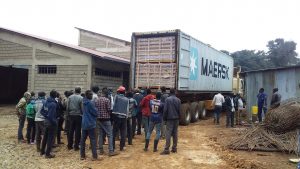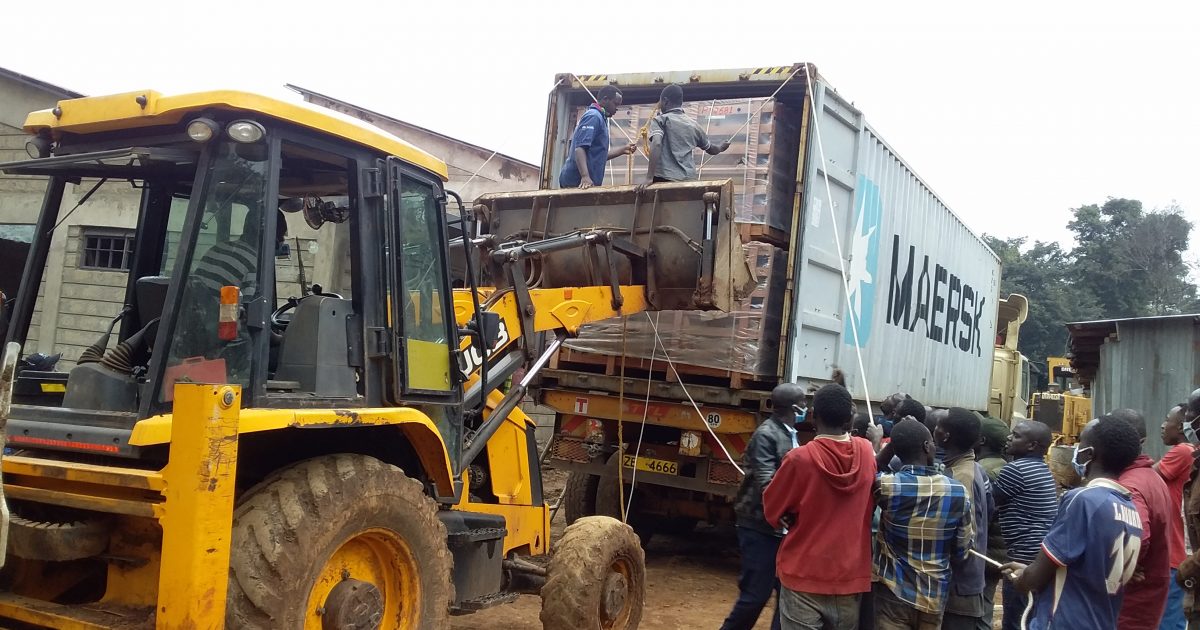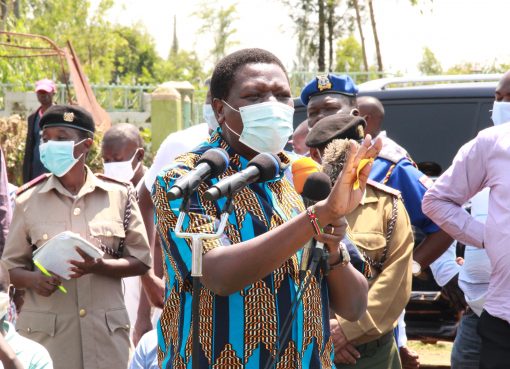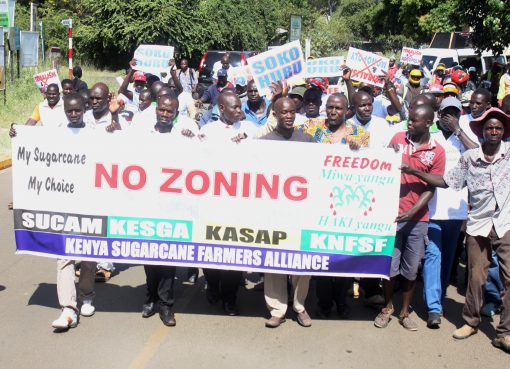

Coffee farmers in Baringo County have been asked to expand acreage under the cash crop to take advantage of a Sh.100 million coffee milling machine being put up at Katimok area in Baringo North.
The Extension Officer in charge of coffee production in the county, Willy Cherogony said the construction of the factory set for completion by mid-September this year will be milling an average of 10 tons of coffee per day and 200 tonnes a month.
Speaking on Saturday during the handing over of the milling machine financed by a South Korean investor, Rev. Cha Bo Yong, Cherogony said the machine, the first in the region, will greatly transform the economic livelihoods of local farmers who have never had a milling machine since introduction of coffee farming in the county.
“Coffee production in the county has remained low because our farmers have been taking their parchment coffee all the way to Sasini, Othaya, EMS in Eldoret and recently Kipkelion in South Rift for milling. At times ferrying to Nairobi and Kiambu we incur losses in terms of transportation logistics, theft and lower prices,” he restated.
He regretted that coffee producers have been experiencing challenges selling their products because of brokers within the value chain ending up in pilferage of the goods.
“But with the arrival of the milling machine, I know it will provide an advantage of doing one stop milling within our production zones and therefore facilitate direct export to markets within the country and outside,”Cherogony reiterated.
The agricultural extension officer stated that area under coffee crop in the county currently stands at 2,500 hectares across six sub counties of Baringo Central, Baringo North, Eldama Ravine, Mogotio and Marigat particularly in Mochongoi area.
“Baringo North and Baringo Central sub counties are our major high potential coffee production zones. Eldama Ravine is also another high potential growing area and we plan to rehabilitate a pulping station there to boost production. In Tiaty constituency, we want to encourage people in Churo to embrace coffee farming as the area has favourable climatic conditions suitable coffee growing,” he added.
With proper crop husbandry, the agricultural officer maintained, the county can produce on average between 400-600 tonnes per year of parchment coffee.
“However, the major challenge with the coffee sector in the county is that majority of the farms are run by the elderly people who no longer have the tenacity to adapt to ever changing dynamics in the sub sector. These crop of farmers require a lot of capacity building due to old age as they don’t want to hand over management to their children. The sector requires the youth to enter into the lucrative crop to inject impetus and energy,” insisted Cherogony
Receiving the equipment, the Deputy Governor, Jacob Chepkwony thanked the South Korean investor for the generous gesture and made passionate appeal to local farmers to step up production to enable the milling machine to operate at the recommended optimum level when it starts operation in nine months’ time.
“As a county we shall try our best to assist existing and new farmers with subsidized fertilizers, certified seedlings and extension services through field officers. I urge those who had abandoned their tree bushes to go back to the farm as the current supply of coffee parchment will not be enough. The machine being installed mills 1.2 tons per hour meaning in 8hours a day it will be milling 9.8 tones, implying that it requires a lot of coffee to make the venture profitable, deputy governor said.
Chepkwony has appealed to coffee farmers in neighbouring counties of Elgeyo Marakwet, Uasin Gishu, Trans Nzoia, Laikipia and Nakuru to also increase production and make use of the new coffee factory.
Rev. Zachariah Chirchir of AIC Kabartonjo Township, a member of implementation committee and representing the church fraternity lauded the investor Rev. Cha Bo Yong for agreeing to sponsor the establishment of the milling machine.
Rev. Chirchir, one of those who visited South Korea on a fact finding mission last year expressed confidence that the machine upon completion in mid-September will transform the economic livelihoods of local farmers who have not reaped any profit from coffee growing since pre-colonial time.
The clergy said to appreciate the investor’s gesture there was need for farmers to revive their abandoned bushes and expand land under the crop since the current production was not enough.
By Joshua Kibet




